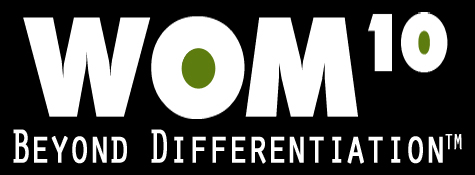I heard this phrase the other day, Crisis Forces Innovation, and it really stuck a chord with me. Let me say that in all my experience with individuals, organizations and business in general, this is very true. It isn’t until someone has their back against the wall do they become the most creative or innovative – present company included. But let me offer a slightly different twist on this theme for you to consider.
As you all know well by now, I spend a lot of time working with top executives in the areas of customers, sales and business development, strategy, marketing and other business consulting venues. I say this to support the fact that I have seen a lot of very successful organizations and some very unsuccessful organizations.
One thing for certain in all my travels is that if you aren’t moving forward you are going backward. There is no more “neutral” position in the market as far as I can tell. “Holding your ground” just means waiting for the enemy to attack – and on their terms, not yours. The comparison to the shark is so accurate – keep moving or you will die. However, I have also been preaching the benefits of “consistency” and “predictability” and “repeatability” in every interaction you have with your customer, partners, shareholders, employees, suppliers, etc. So how does one balance this “constant state” with that of a “changing state” in today’s fast moving and challenging environment? How does one actually create innovation without crisis? These are some of the questions I was asking myself this weekend and thought i would share my results with our readers.
Let me first begin by saying I don’t find these mutually exclusive in any way. In fact, I think they are completely supportive of each other in many ways. Second, I believe there are ways you can offer this up to your “internal” and “external” constituents in a way that benefits everyone. What is innovation anyway? Many definitions out there today as the word is used extensively. My simple one is, “coming up with something ‘different’ that allows you to stay in the lead.” This might not pass the Webster scrutiny but if you think about it, isn’t that why we want to innovate – to stay on top and in a leading position in whatever we are doing? Now let me throw a different perspective at you.
Why wait? Why wait for a crisis to force you to innovate? Why be pressed into the corner and have to come up with something in order to create new and innovative ideas? I don’t believe you have to.
I prescribe to the belief that proactive is generally better than reactive. True, while you have the luxury of obtaining market and other information ahead of your response, you certainly won’t be viewed as the “innovator” or “creator” of new products or services. This may work in certain situations but there are a lot of other benefits to also participating occasionally as the “innovator.” So how can you do both – simple.
Create a “Mock Crisis” to simulate what you believe could occur in the market. Do this on a regular basis, not just once a year when you do planning. Train your teams to think in “Mock Crisis” mode and you will find people are much more creative and innovative in a less stressful time and can come up with more ideas than you could possibly imagine. Are all of them good ones – absolutely not. But all of them are ways to think about the crisis BEFORE it actually occurs so if it does occur, you find yourself in a much less stressful situation and thinking much clearer – and with better information. Mock Crisis simulation lets you live the future today. Experience the fear and pressure when there isn’t any and learn how to react to this in advance. Know how you will respond quickly and the process you will go through before you have to go through it.
So yes, crisis does force innovation and always will. Just take control and put the leverage and timing on your side and not that of your competitors or other outside influences. Keep moving forward, even when things are running along smoothly. Innovate continuously and proactively – not reactively. At least not all the time…
Blaine
